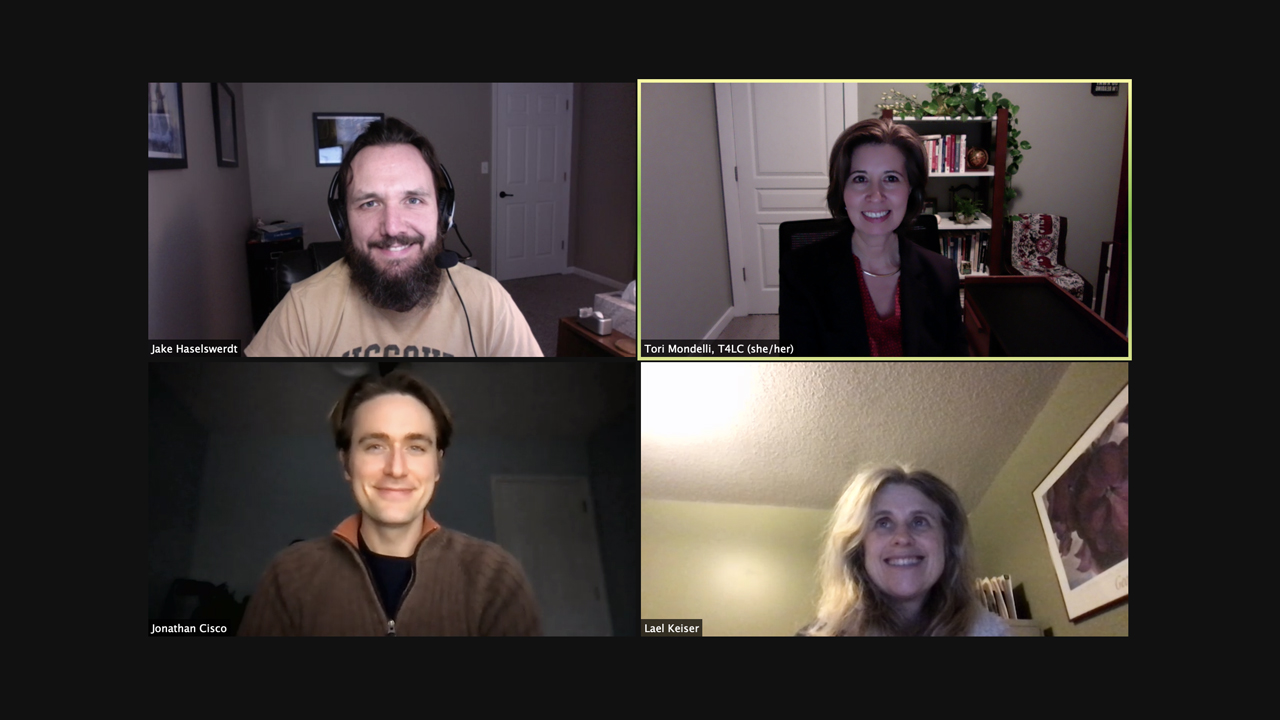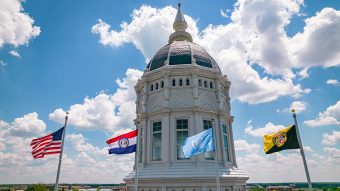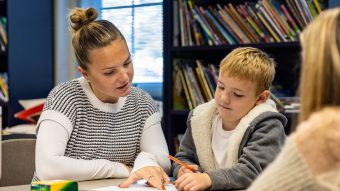
Jan. 12, 2021
Contact: Kenny Gerling, gerlingk@missouri.edu
Every semester, hundreds of undergraduate students enroll in American Government (POL_SC 1100), which covers the basics of the U.S. political system. The class fulfills a general education requirement and is often taught across many large sections, so educators face a challenge in addition to their other teaching responsibilities: How do you sustain student engagement and deep learning with such a large enrollment?
To address these questions and better support students, American Government faculty participated in a Teaching for Learning Center (T4LC) program called Communities of Practice. Launched in 2019, Communities of Practice bring faculty together to discuss teaching challenges and to develop strategies for a more equitable and successful learning environment.
William T. Horner, teaching professor, director of undergraduate studies and one of four American Government instructors, said part of the discussion involved reflecting on how to standardize the class across several different sections. “[American Government] is like an owner’s manual for citizenship,” he said. “Everyone who teaches that class feels very strongly about its importance, and we all have pure motives. Just different teaching methods.”
Coming together
Victoria Mondelli, founding director of the T4LC and one of the facilitators of Communities of Practice, said the program’s power comes from talking and investigating student learning challenges not only with faculty, but also with other members of the campus community.
“Communities of Practice is a venerable, evidence-based format, and the idea is that you bring together faculty, staff — even students — who have a topic they would like to engage in co-inquiry,” she said. “What’s so wonderful about the format is it’s highly flexible and emergent ideas are based on what the group surfaces together.”
American Government professors and T4LC staff began meeting in fall 2019. Together, they identified factors that commonly predict student success (such as attendance) and discussed ways to improve overall engagement. Graduate teaching assistants and tutors from the Learning Center were also consulted for student-level perspectives of common issues. Some of the resulting strategies — like mini-quizzes during lectures — ended up being particularly effective due to the shift to remote learning last year. Other changes included combining the sections so that different faculty teach on alternating weeks based on their area of expertise, organizing more guided group discussions and incorporating smaller assignments throughout the semester, rather than a few large exams.
Jonathan Cisco, associate director of the Teaching for Learning Center, said it’s easy to rally people together when the end goal is student success. “There’s a mountain of things that we know work in the classroom,” he said. “A Community of Practice creates a space for otherwise busy people to come together to discuss a shared concern, interest or passion. Rather than those opportunities coming to you in bits at a meeting, or over a socially-distanced coffee, it provides a space to talk, and then to act.”
Though Communities of Practice is a relatively new program, faculty from schools and colleges in addition to arts and science — such as education and journalism — have also used its collaborative format to consider topics such as inclusive excellence and how to improve the online learning environment.
Something for everyone
On Jan. 14, the T4LC is hosting a virtual session on Communities of Practice. The session will include a panel discussion with faculty who have participated in the program and T4LC staff. The session is part of T4LC’s annual Teaching Renewal Week (Jan. 11-15) and is open to all faculty and staff members.
Horner will be one of the faculty presenters at the session. He said that early indicators show the new strategies have improved class engagement and student outcomes, and allowed for a greater level of accommodation for students with disabilities. Horner said that though it can be uncomfortable to change, it’s been a worthwhile process. “It gave us an opportunity to talk,” he said. “And I think it could help a lot of disciplines.”
The Teaching for Learning Center supports instructors at Mizzou by offering forms of professional development and teaching assistance. To register for the Communities of Practice session and others during Teaching Renewal Week, visit the Teaching for Learning Center website. Faculty interested in more information about Communities of Practice can contact the Teaching for Learning Center.



